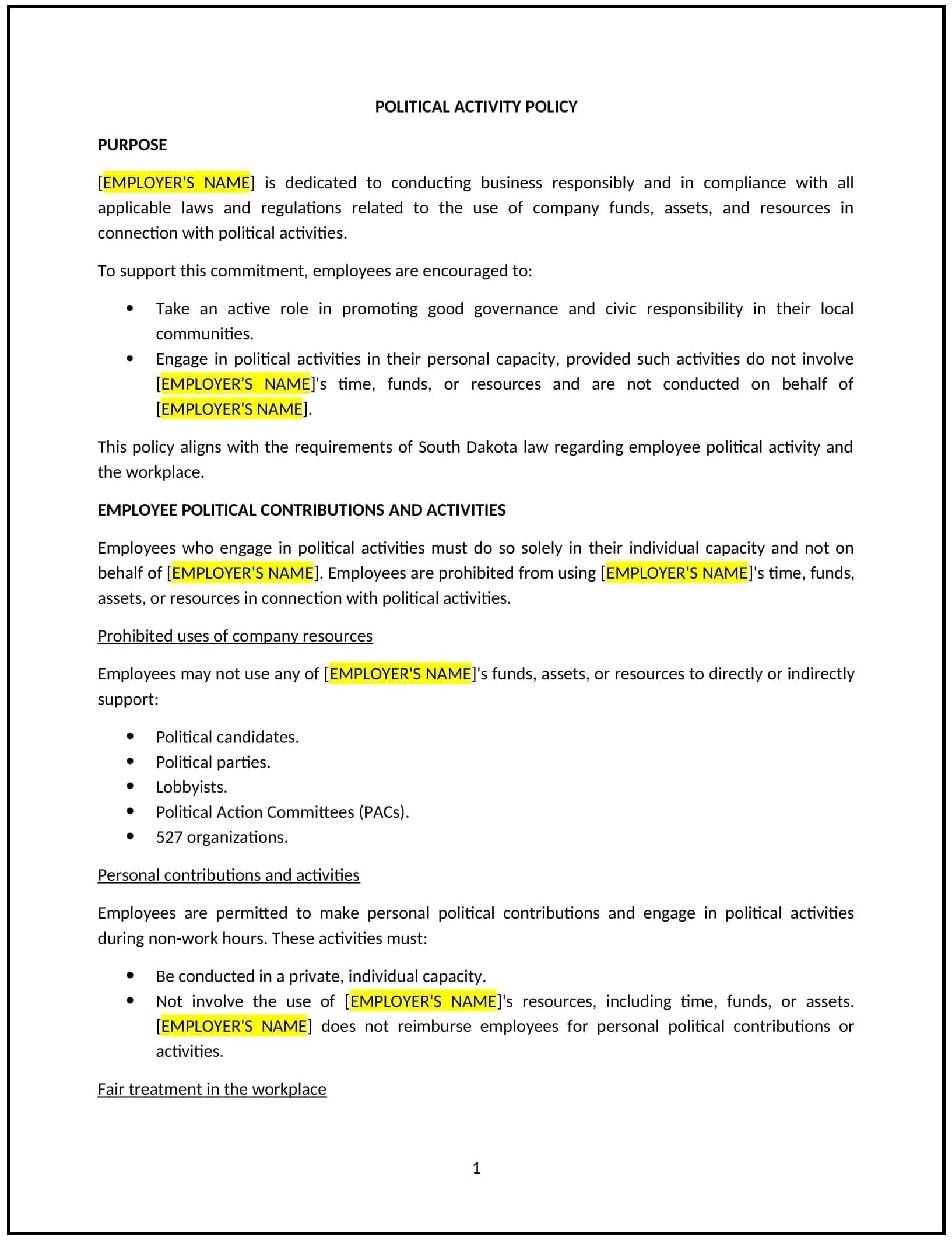Political activity policy (South Dakota): Free template
Got contracts to review? While you're here for policies, let Cobrief make contract review effortless—start your free review now.

Customize this template for free
Political activity policy (South Dakota)
This political activity policy is designed to help South Dakota businesses establish guidelines for employees engaging in political activities. It outlines procedures for balancing personal political involvement with workplace responsibilities.
By adopting this policy, businesses can promote transparency, maintain professionalism, and align with general best practices for workplace conduct.
How to use this political activity policy (South Dakota)
- Define political activity: Explain what constitutes political activity, such as campaigning, fundraising, or running for office.
- Establish workplace boundaries: Specify restrictions on political activities during work hours or using company resources.
- Address conflicts of interest: Provide examples of prohibited activities, such as using company time or property for political purposes.
- Set disclosure requirements: Outline steps for employees to disclose political activities that may impact their work.
- Train employees: Educate staff on the policy and their responsibilities regarding political activities.
- Monitor implementation: Regularly review political activity disclosures to ensure adherence to the policy.
- Review and update: Assess the policy annually to ensure it aligns with evolving business needs and workplace standards.
Benefits of using this political activity policy (South Dakota)
This policy offers several advantages for South Dakota businesses:
- Promotes transparency: Demonstrates a commitment to clear guidelines for political activities in the workplace.
- Maintains professionalism: Helps create a workplace culture focused on business priorities rather than political involvement.
- Reduces conflicts: Minimizes potential conflicts of interest and workplace tensions related to political activities.
- Builds trust: Shows employees that the business values fairness and transparency in workplace conduct.
- Supports best practices: Aligns with industry standards for managing political activities in the workplace.
Tips for using this political activity policy (South Dakota)
- Communicate the policy: Share the policy with employees and include it in the employee handbook.
- Provide training: Educate staff on the importance of balancing political activities with workplace responsibilities.
- Monitor implementation: Regularly review political activity disclosures to ensure adherence to the policy.
- Address issues promptly: Take corrective action if political activities violate the policy or disrupt the workplace.
- Update regularly: Assess the policy annually to ensure it aligns with evolving workplace standards.